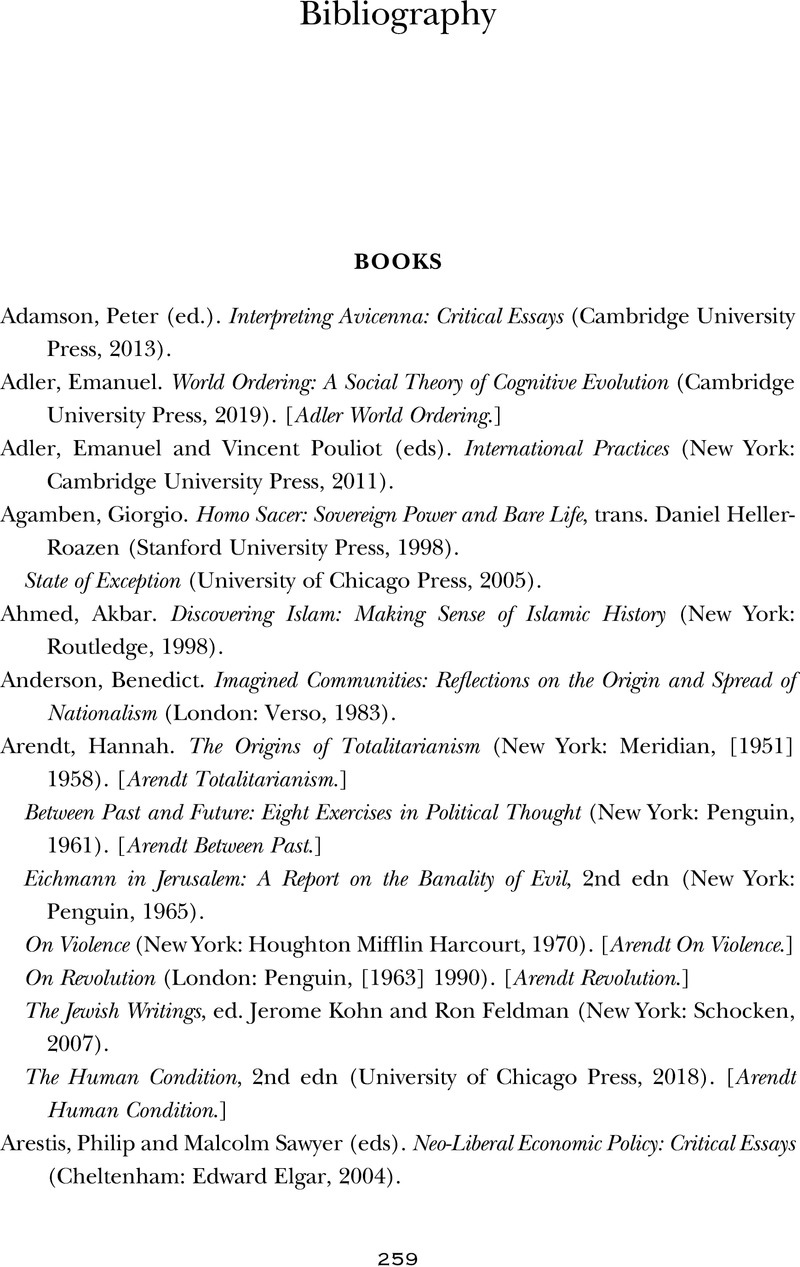Book contents
- A Rule of Law for Our New Age of Anxiety
- Reviews
- A Rule of Law for Our New Age of Anxiety
- Copyright page
- Dedication
- Contents
- Acknowledgements
- Preface
- A Note on Referencing
- Introduction
- Part One Uncertainty, Risk and Anxiety
- Part Two Our Inheritance of Thought and Action: Addressing our Anxiety
- Part Three A Modest Rule of Law Helps Frame a Healthier Society
- Conclusion: That a Beginning be Made
- Bibliography
- Index
- References
Bibliography
Published online by Cambridge University Press: 12 May 2023
- A Rule of Law for Our New Age of Anxiety
- Reviews
- A Rule of Law for Our New Age of Anxiety
- Copyright page
- Dedication
- Contents
- Acknowledgements
- Preface
- A Note on Referencing
- Introduction
- Part One Uncertainty, Risk and Anxiety
- Part Two Our Inheritance of Thought and Action: Addressing our Anxiety
- Part Three A Modest Rule of Law Helps Frame a Healthier Society
- Conclusion: That a Beginning be Made
- Bibliography
- Index
- References
Summary

- Type
- Chapter
- Information
- A Rule of Law for Our New Age of Anxiety , pp. 259 - 288Publisher: Cambridge University PressPrint publication year: 2023



